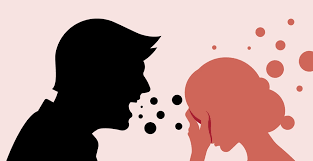Are You Living in a Toxic Relationship?

Author: Dr. Julie. Sorenson, DMFT, MA, LPC
What is a Toxic Relationship?
 Living in a toxic relationship can be emotionally draining. A toxic relationship could be romantic, friendships, within the family unit, or with co-workers. People living in toxic relationships face conflict and competition, for their partners to need to be in control. If you are living in a toxic relationship you may notice the following signs: jealousy, blame and gaslighting. At the beginning of your relationship, you may have felt that you met the ideal partner, friend, co-worker, or family relationship. However, over time negative behaviors become apartments as they become controlling, demanding, and emotionally or physically abusive and their true colors start to emerge.
Living in a toxic relationship can be emotionally draining. A toxic relationship could be romantic, friendships, within the family unit, or with co-workers. People living in toxic relationships face conflict and competition, for their partners to need to be in control. If you are living in a toxic relationship you may notice the following signs: jealousy, blame and gaslighting. At the beginning of your relationship, you may have felt that you met the ideal partner, friend, co-worker, or family relationship. However, over time negative behaviors become apartments as they become controlling, demanding, and emotionally or physically abusive and their true colors start to emerge.
You may not even realize that you are in a toxic relationship as it could take months or years to recognize the damage. Some signs to pay attention to are as follows:
- Your partner, friend, family member, or co-worker may start isolating you from others to decrease your support system while increasing your dependence on your partner.
- Continuous arguments. In toxic relationships, the partner that feels the need to be in control will berate, belittle, and criticize their partner if they notice any signs of independence. These behaviors will come out during arguments or disagreements.

- The controlling partner will blame the other partner for anything negative in the relationship while trying to dominate the responsibility for anything good that happens.
- Within a toxic relationship, there will be jealousy and dishonesty. The toxic person will accuse his/her partner of flirting or having an affair.
- A toxic person denies any issues and manipulates events to make themselves appear to be the better person.
- Compromise is important, but if you notice that you are constantly giving in, trying to make peace, and doing things that are against your morals or values to keep the other person happy then chances are you are in a toxic relationship.
Relationships fall into one of two categories. Positive or healthy relationships are those where the couple supports each other and shows empathy and compassion to the other person. Both parties are willing to give and take and compromise with each other. Positive relationships are not always perfect, but when the couple has disagreements, they can work it out in a way that is mutually satisfactory and does not result in one person imposing their will or desires on the other. Toxic relationships typically fall into three stages.
- Idealizing - Idealizing happens in the beginning stage of the relationship. You feel loved, cherished, and important. They may say things like you are amazing, or you are my best friend, my person. They may surprise you with unexpected gifts or schedule fun events and have a lot of time devoted to you. Often the toxic person isn’t trying to have an emotional connection with you but gearing up to throw back at you later or captivate you, where you are less likely to leave the relationship.
- Devaluing - Devaluing happens when the toxic person knows you are deeply committed to the relationship. They try to make you feel less about yourself by making negative comments about your appearance or character. They may even use sensitive information that you shared with them against you as ammunition. If they don’t like the boundaries you have set they may say things like “well I understand why you don’t have many friends”, or “you always make yourself seem crazy.” During the Devaluing stage, you feel like you can’t do anything right. If you try to find a way to please the toxic person in the relationship, it won’t last long because they will always look for hoops for you to jump through. They may triangulate you by saying that a friend, family member, or co-worker agrees with them about something unkind they have said. Their number one goal is to isolate you from others.
- Discarding - The toxic person will always try to bring you back into the relationship, regardless of if you left or they left. They will promise to change and make you believe that it will be better and that they will stop the negative behaviors. Just keep in mind they don’t intend to take responsibility for their behaviors and the promises they make will be short-lived, without the help of a therapist. It is possible the relationship could be more dysfunctional than before. You may find the toxic person in your life leaves for good, potentially ghosting you and cutting off contact. They may even make you believe that it is your fault they left, but they may already have a new target.
How to break free of a toxic relationship?
While breaking free from a toxic relationship can feel taxing, it is possible. Looking for positive support, and people you can talk to is essential when getting out of a toxic relationship. Lean on those positive people to help you adjust to your new way of life. Ensuring that you are taking the time for self-care, building time for you into your everyday. Learn yourself again and allow for healing by setting boundaries and balancing your life. Of course, if you are feeling too overwhelmed reach out to a local therapist. Relationships can fall into positive and healthy categories where you feel supported, loved, compassionate for each other, and empathetic. A healthy relationship is not always sunshine and rainbows, however, each member is willing to talk and hear the other person, allowing for healthy disagreements where each person looks for solutions. One of the best things you can do with a toxic person is to go no-contact, cut them out of your social media, and block them.

Therapists can provide you with tools and techniques to rebuild your self-esteem and assist you on your therapeutic journey. If your toxic partner is willing to make changes that can improve your relationship they may be willing to go to therapy with you. If that is a route that you want to take, couple counseling may be effective to find tools and techniques for healthy communication.